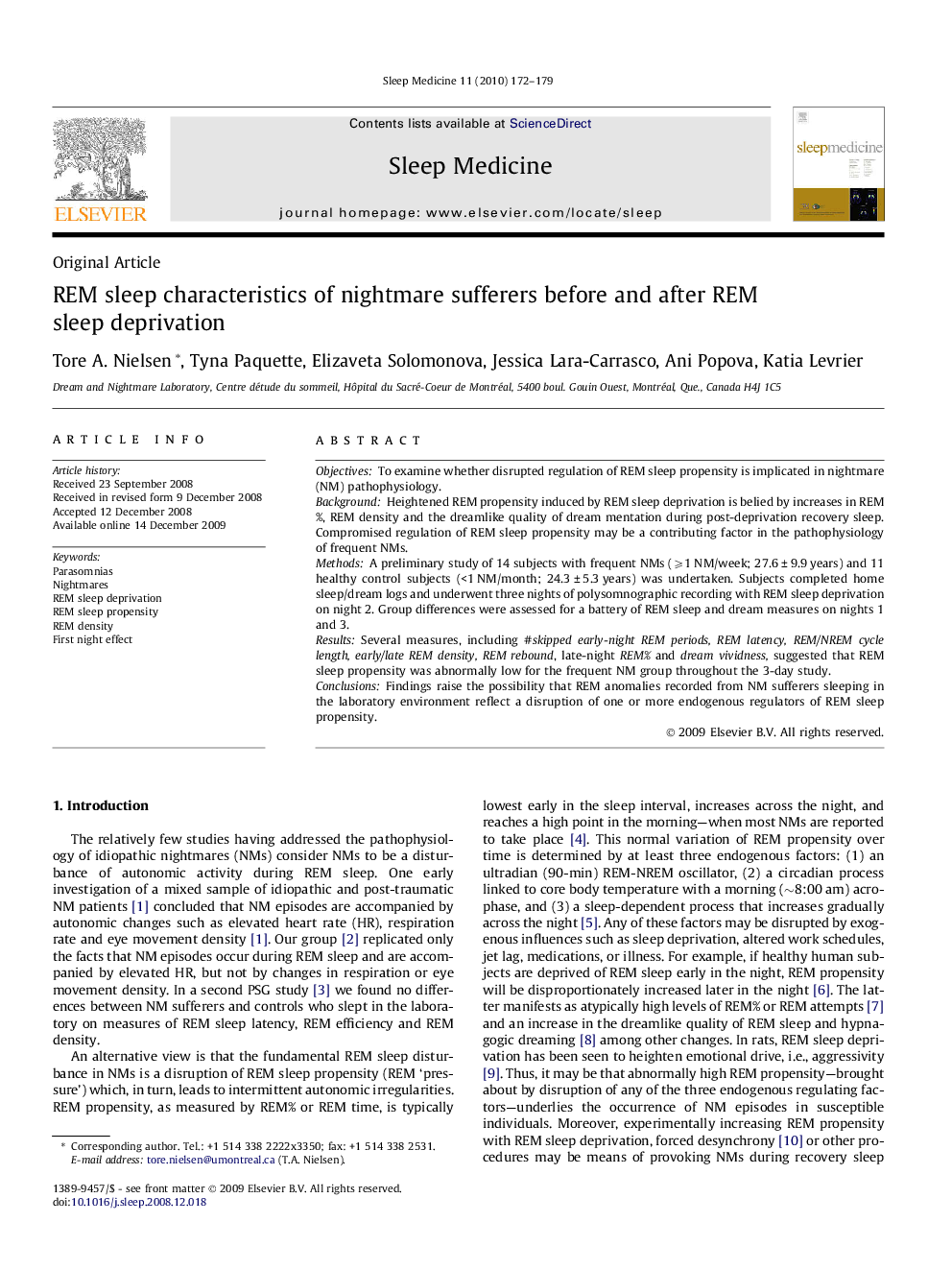| Article ID | Journal | Published Year | Pages | File Type |
|---|---|---|---|---|
| 3176475 | Sleep Medicine | 2010 | 8 Pages |
ObjectivesTo examine whether disrupted regulation of REM sleep propensity is implicated in nightmare (NM) pathophysiology.BackgroundHeightened REM propensity induced by REM sleep deprivation is belied by increases in REM %, REM density and the dreamlike quality of dream mentation during post-deprivation recovery sleep. Compromised regulation of REM sleep propensity may be a contributing factor in the pathophysiology of frequent NMs.MethodsA preliminary study of 14 subjects with frequent NMs (⩾1 NM/week; 27.6 ± 9.9 years) and 11 healthy control subjects (<1 NM/month; 24.3 ± 5.3 years) was undertaken. Subjects completed home sleep/dream logs and underwent three nights of polysomnographic recording with REM sleep deprivation on night 2. Group differences were assessed for a battery of REM sleep and dream measures on nights 1 and 3.ResultsSeveral measures, including #skipped early-night REM periods, REM latency, REM/NREM cycle length, early/late REM density,REM rebound, late-night REM% and dream vividness, suggested that REM sleep propensity was abnormally low for the frequent NM group throughout the 3-day study.ConclusionsFindings raise the possibility that REM anomalies recorded from NM sufferers sleeping in the laboratory environment reflect a disruption of one or more endogenous regulators of REM sleep propensity.
